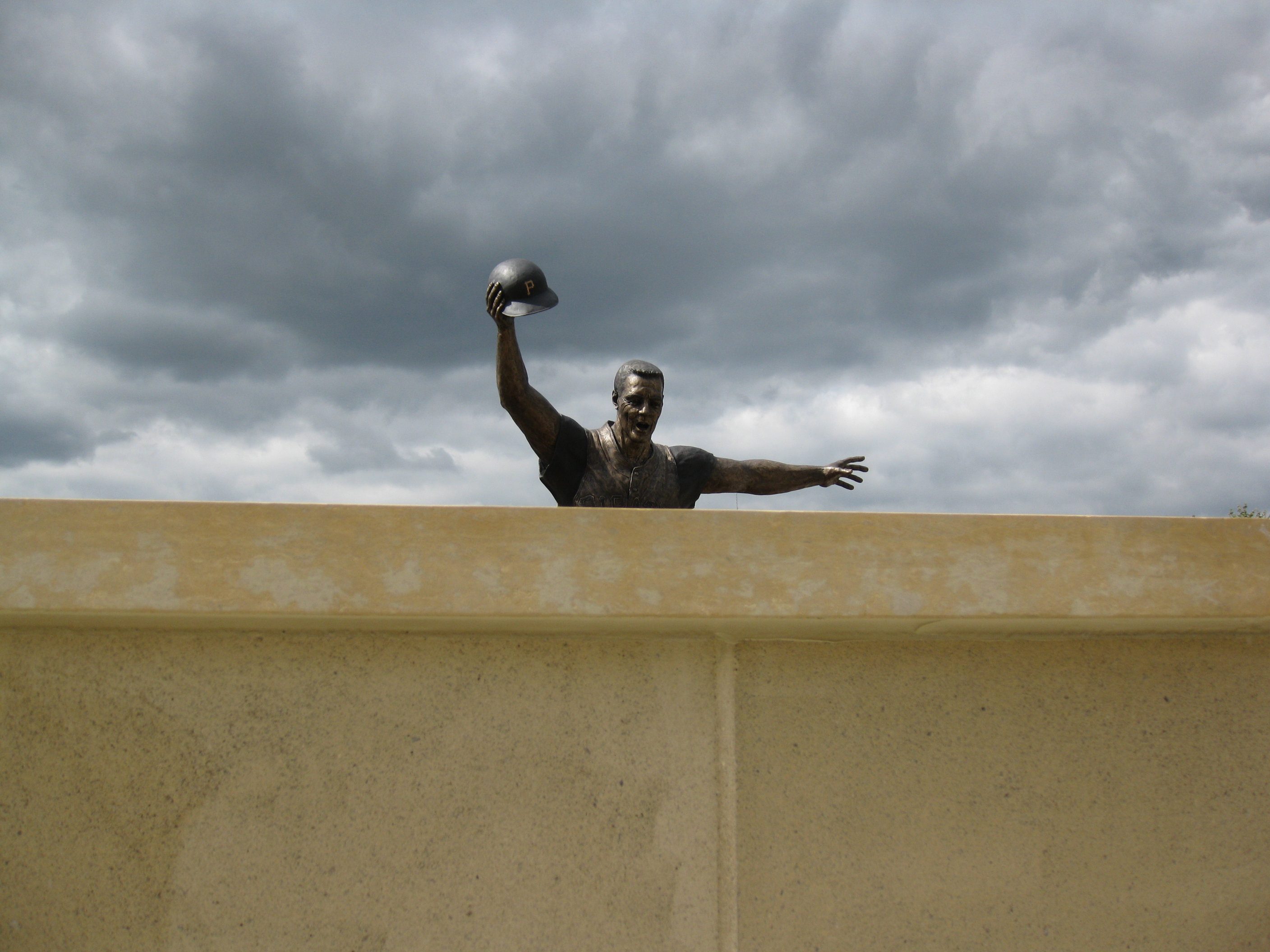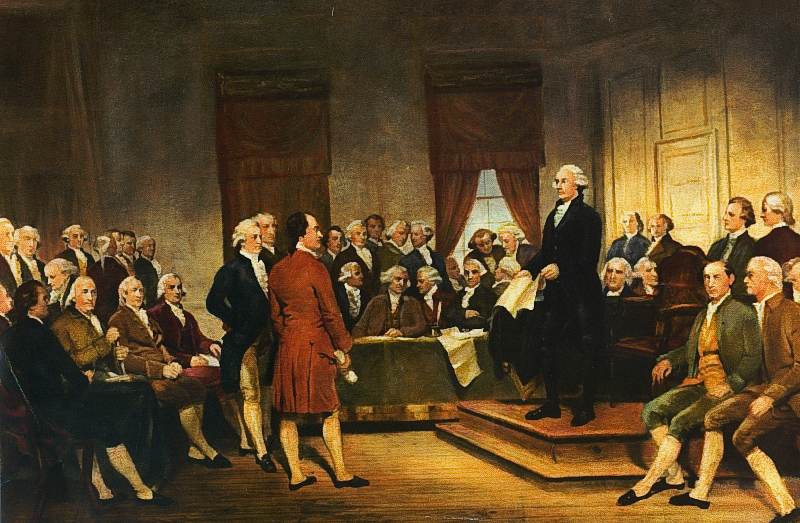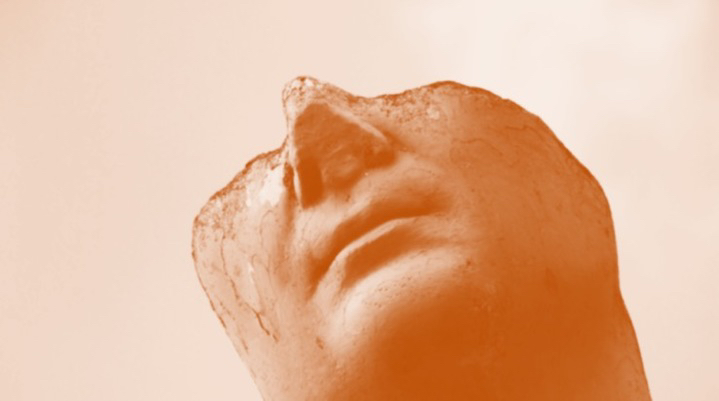Honor in a World Gone Mad

How to see clearly in the kingdom of the blind.
In the year 1711, behold: Justice descended from heaven to shine the light of truth on all mankind and “to restore and appropriate to every one living what was his due.”
With “darkness and clouds about her, that tempered the light into a thousand beautiful shades and colors,” Justice proceeded to reassign wealth, honors, and status so that they accurately reflected the merits and deserts of which they were supposed to be markers. “One might see crowds of people in tattered garments come up, and change clothes with others that were dressed with lace and embroidery.”
This is the fantasy scene described by Joseph Addison in his “Vision of Justice,” an essay he published in the Spectator. The first time I read it, I thought it was sour grapes. Addison notes that “I was very well pleased to see that all my friends either kept their present posts, or were advanced to higher.” It’s meant as a bit of a troll, but it still felt to my younger self like the erudite lamentation of an outsized ego wounded by allegedly inadequate recognition.
Now I’m not so sure. Addison was wise to put the light of truth in the hand of Justice: it is justice, after all, that gives to each what he is owed. Suum cuique, to each his due: this is the golden thread that links Plato’s Republic to Aristotle’s Politics, running on down through the history of Western political and moral thought even to the present benighted day. Addison’s is no arbitrary imposition of power or equitable redistribution of wealth: the outcome of Justice’s intervention is not a Communist utopia in which all are of equal stature. It is a society which displays all the shades and gradations of rank that there were in 18th-century England, but rearranged to reflect the truth of every man’s heart.
In other words, what changes is that the outward marks of virtue—the titles, contracts, and positions which convey status—are aligned perfectly with the actual reality of virtue itself as it exists (or fails to) inwardly. So far as public honors and social class are concerned, that is true justice: a divinely accurate and precisely calibrated meritocracy.
That is not the world we live in. It wasn’t in the 18th century, and it won’t be until we find ourselves on a new earth under a new heaven. Only the most deluded optimist could imagine that it is possible to assign praise and blame according to the exact truths of the heart using merely human standards of measurement. That is why only God could pick David, the destined king of Israel, from a lineup of his older and more obviously regal brothers: for “the LORD does not see as man sees; man looks at the outward appearance, but the LORD looks at the heart” (1 Samuel 16:7).
Still, we do our best to approximate accuracy and give credit where credit is due. That’s the point of having public honors at all: we are trying to make what Catholics, describing Church sacraments, call “an outward sign of an inward grace.” To refrain from conferring such honors would be just as dishonest and unjust as to practice Communism, and for exactly the same reasons: merit exists. You either lie about it or you try, haltingly, to tell the truth.
But—and this is why I have revised my opinion of Addison’s essay—the older I get, the more I feel that American public honors have utterly and perhaps irredeemably ceased to serve their high purpose. With mounting horror, I have come to feel that all the degrees, titles, and positions of rank we bestow on people are at best irrelevant to, and at worst actively deceitful about, the real qualities of those who hold them. Some of my friends on the very online Right call this phenomenon Clown World. It is a serious problem.
Not long ago I absent-mindedly tweeted to ask people when their “radicalization moment” was—when they became so appalled or astounded at the state of affairs that they stopped trying to be moderate about politics. I got more than I bargained for in response. One of the most unexpected answers was also one of the most frequent and the most revealing. “In college,” as one poster put it, “I got an A for a terribly written essay because I took a position I knew the professor agreed with.”
I myself have similar memories, from as far back as grade school: for certain teachers, you knew that only a certain range of views would fly. How well or poorly those views were defended mattered little or not at all: what mattered was which ones you held. The intriguing irony is that those teachers were also always the ones who stressed “critical thinking”—some of them even had a reputation for being free-thinking mavericks.
This is hypocrisy at a very deep level. When you discover as a child that what adults say they want from you is not what they will in fact reward, you remember that. Maybe the people who commented on my Twitter thread hadn’t thought about those professors in years. But the memory and its lessons had seeped into their bones. It made enough of an impression on them that when pushed, they can now look back and realize: that is when they understood what it is to live inside a lie.
The Senators and the Judge
As I write this, the hearings to confirm Judge Amy Coney Barrett as the next Supreme Court justice have just concluded. They have embodied everything that is most demoralizing about the breakdown of American public honors. It saps one’s will to watch U.S. senators engage in forms of political theater premised on deep ignorance, real or feigned, about how American law works.
From Hawaii’s Mazie Hirono, to New Jersey’s Cory Booker, to Connecticut’s Richard Blumenthal, Barrett was repeatedly forced to explain—calmly, as if to children—that no, she can’t say how she would vote on specific cases in advance, and no, her originalist philosophy doesn’t mean never amending the Constitution. In public statements after the fact, prominent Democrats from Hillary Clinton to Senator Ed Markey to Chicago Mayor Lori Lightfoot implied that originalism means freezing the social customs and standards of the 1770s in time—as if the text of the Constitution itself doesn’t explicitly include guidelines for making alterations to laws that no longer fit the circumstances, from congressional legislation on up to constitutional amendment.
I suspect Clinton, at least, is well aware that her posture was absurd. This, of course, makes it worse. In the cases of Hirono and Lightfoot, the ignorance on display is probably quite genuine. In every instance, though, it is less and less possible to pretend that these people are worth our admiration or even our respect. Our new digital environment, contrary to popular belief, is actually quite hostile to performative self-curation. Online, only authentic self-exposure garners any attention worth speaking about (spare me your Jeffrey Toobin jokes here, please). Under such circumstances, it has become harder and harder for our supposedly leading lights to hide that they are either studiously cynical, alarmingly stupid, or both.
Perhaps the most dispiriting moment of the hearings was an exchange between Judge Barrett and Senator Kamala Harris, who, it will be recalled, might well be president of the United States someday soon. Rooting around in her big box of feckless rhetorical gestures, Harris told the weepy story of a young woman—whose medical condition, let it be duly conceded, elicits sympathy—before strongly suggesting that Barrett will deprive such people of their health care by striking down the Affordable Care Act.
Leaving aside the supreme unlikeliness of such an eventuality (of which, again, I suspect Harris is aware), it was equal parts grimly satisfying and bleakly depressing to watch Barrett brush off the senator’s empty questions. “Do you currently consider the consequences of your ruling on people’s lives?” Harris asked. “Well, Senator Harris,” replied Barrett with deadpan ease, “that’s part of the decision of every case.” “And so you do,” Harris responded lamely. Then again with a blank stare: “Every case has consequences in people’s lives, so of course I do in every case. It’s part of the judicial decision-making process.” In less gracious terms than Barrett’s: yes, you hack—that’s literally what being a judge is.
It’s an indignity for someone of Barrett’s seriousness and qualifications to undergo evaluation by buffoons of Harris’s caliber, as if it were they and not she who carries the full weight of authority in the room. And yet it was lost on no one with eyes to see that Barrett, if confirmed, will be the only sitting Supreme Court Justice who did not graduate from either Harvard or Yale. There is a growing percentage of the population for which this is a point in her favor and part of the explanation for her plainspoken, seemingly effortless brilliance.
Confidence in higher education generally has been plummeting for some time. It gets worse the more major universities simp for manifestly witless sophists like Robin DiAngelo and Ibram X. Kendi as they maunder dribblingly on about “white fragility” and “anti-racist discrimination.” Every day, in other words, it becomes harder to keep up the pretense that academic prestige has anything to do with academic achievement. COVID-19 has turned places like Harvard into $55,000-a-year webinars; and as the breakout sessions start to look more and more like struggle sessions, we approach the point at which only the most dedicated apologists can view an Ivy-League bachelor’s degree as anything other than a sublime triumph of empty credentialism.
What to Do
It is a bit of ancient wisdom that every society will produce more of what it honors publicly. This is one of the main arguments that is worked out over the course of Livy’s monumental history of Rome: it is because virtues such as prudence and frugality were “so highly and continuously honored,” as the historian says in his preface, that Romans became the kind of citizens who could make their homeland great. As long as “the state showed its gratitude” for war heroes like Horatius Cocles, it encouraged others to emulate his achievements (Livy 2.10). A cornerstone of Rome’s success was what is called aemulatio in Latin—a healthy competition among young men and women to outdo one’s forebears and one another in public honors.
The converse follows, of course: societies which award their highest honors to conformity and dishonesty will produce generations of cowards and liars. An America in which children learn to feign agreement with their teachers’ political views in exchange for the social capital afforded by a high GPA is an America in which, sooner or later, the worst kinds of people will proliferate and rule—as indeed they now do.
We have reached a point at which failing upward—to the tune of running for vice president after having received not a single delegate from one’s own party during one’s presidential bid—is not a distinct phenomenon but the regular operating system of government and society. True virtues—things like integrity and inventiveness—are either stifled or snuffed out altogether by those who either fear them or worry rightly that practicing them will lead to social censure. Yeats’s poem springs to mind: “the best lack all conviction, while the worst are full of passionate intensity.” In such circumstances, of course, the center cannot hold.
Another piece of ancient wisdom is this: republics, depending as they do on balancing the excesses of democracy, aristocracy, and monarchy against one another, are bound to have an aristocratic element—an elite. The pejorative connotation that word has come to bear is not a foregone conclusion, but in our case it is well-earned. It expresses a felt sense that our aristocracy—the group of people who seek and achieve the highest-status positions we have to offer—has degenerated into a corrupt and self-serving oligarchy. Given what I have said about public honors thus far, it could hardly have been otherwise. Put these observations together and you get what I and many others have feared for some time: a dying republic.
All republics die, and all civilizations go through life cycles of decay and rebirth: that is a third piece of wisdom from antiquity. But it is a useless bit of wisdom unless we may expect to have some input, however minor, into the trajectory and speed of that cycle. In other words: if only to stave off despair, we must hope that our actions can slow the decline, or speed the renewal, of our polity. Or else at least we must hope that our present efforts will be of use to some new polity which someday—maybe generations from now—will make a fresh start. The only other option is surrender, which is no option at all.
The dynamics I’ve described here aren’t going away, no matter who wins this election. Donald Trump alone is not going to restore probity or sanity to our civic life: we have to do that. I fully grant that it will be much easier for us to do so with Trump in office than it will be under Joe Biden and Kamala Harris, who are not so much critics of our scrambled value system as they are its most extravagant beneficiaries and propagators. Trump, at least, knows something is out of whack.
But this is on us, ultimately: it is we who have to figure out how to act in—and hopefully help to heal—a world that calls good evil and evil good. In particular it’s on young people, whose job it is to be lustily ambitious for achievement and passionately ready to build things of worth. In the remainder of this essay, I’d like to meditate on a few ways we might try to do so.
First: for all the unmasking that has (ironically) occurred during this pandemic-ridden season, our heightened awareness of institutional decline has not translated into a real loss of social capital for those who pursue the decadent honors of our declining regime. The mention of Harvard’s name or the appearance of Yale on a resume still commands a certain deference, a sense that the title holder must have performed impressive feats commensurate with the impressive name. If you are someone—full disclosure, someone like me—with a lot of fancy degrees, you can feel the special treatment those degrees afford you, even from people who are harsh and vocal critics of academia.
Thus there is, more than anything, an emotional hurdle that we need to get over in order to incorporate into specific personal interactions the implications of our more general beliefs about the state of public honors in this country. This is a shift that will gather its own momentum once it gets started (as in some circles it already has). We will be cooking with gas when, at least among those who love America and want to see her succeed, a Hillsdale degree—or indeed a high school degree followed by an innovative business career—carries more social clout than a Harvard degree. We need to recalibrate our own relationship to credentials so that the ones we honor in our daily lives are the ones we really think matter as reliable indicators of excellence.
One dimension in which this absolutely must occur is that of homemaking and motherhood for women. Conservatives are now the only game in town when it comes to valuing femininity in and of itself—that is, to celebrating women not for their achievements in masculine spheres but for living the lives of spousal devotion and maternal nurture that they overwhelmingly long for and love.
And so, all the usual disclaimers about unique individuals and freedom to choose having been made, at a population level we ought to make sure that we are holding in the highest possible esteem those who make the world spin—namely, stay-at-home moms. I’d love to see us reconsider our position on student loan forgiveness for those who start families and have kids, but we can start with the less ambitious notion of saying an admiring “wow”—and meaning it—when someone tells us she’s a full-time homemaker. She’s building the future of America: show some respect!
Finally, in the business and media world—and I cannot stress this one enough—those of us with money have got to start investing in people who have achieved success in their field by fighting against the institutions that are supposed to cultivate excellence in that field. These are the people who have pursued truth and justice despite the fact that hardly any fancy titles or awards are attached to such things anymore. I’m thinking here of journalists like Andy Ngô, whose reporting on this year’s riots would have earned him a Pulitzer in anything approximating a sane universe. There are others—Tim Poole, for example, or Mike Solana—who deserve that kind of recognition but won’t get it any time soon. We have to make a home for such people, and we have to start supporting their endeavors in a more dedicated way than we currently are.
If the unorthodox format of these people’s work, or the fact that they don’t espouse every possible principle on the conservative wish list, is what’s holding us back, well then—for shame. The people we need on our side aren’t going to fall into perfect lockstep with our previously agreed-upon views. That’s the whole point. What we value in them is precisely the integrity and courage it has taken to speak the truth as honestly as they possibly can from their perspective. We can nurture those gifts and help inform them with conservative values of our own—but not if we dismiss them out of hand.
In the event of a Biden victory, I suspect that the crackdowns on “unauthorized” truth telling will be very harsh indeed—we have seen only a glimpse of how bad it can get with Twitter’s decision to blackout the New York Post because of its potentially damning revelations about Hunter. Now is the time to shore up our own resources and defenses, and do our best to shelter within our walls anyone and everyone who is willing to fight the behemoth power which is wokeist technocracy.
A final word to buck up the troops. I confess that from where I sit, the position in which we find ourselves appears to be a dire one. But the decision about which age we are born into is one that is distinctly above our pay grade. Gloom and doom—those cherished hallmarks of the domesticated opposition which is “sensible” and “respectable” conservatism—are things for which I have neither patience nor time. The hour may not be quite so late as we think, and even if it is: so what? We will build our fortresses and assemble our weaponry. If they are swept away by the tidal wave of the age then at least let us not have it said that something we left undone could have stemmed the tide.
Imagine if you will that the worst will come. Even if so, we don’t know what generations yet unborn will pick up the fragments of our broken towers and discern in them the outline of the next great thing. That, too, is above our pay grade. For our part, we are bound by honor and duty to make our stand.
The American Mind presents a range of perspectives. Views are writers’ own and do not necessarily represent those of The Claremont Institute.
The American Mind is a publication of the Claremont Institute, a non-profit 501(c)(3) organization, dedicated to restoring the principles of the American Founding to their rightful, preeminent authority in our national life. Interested in supporting our work? Gifts to the Claremont Institute are tax-deductible.
Root, root, root for the electors. If they don't win it's a shame.
Part I: Unfettered reason cannot conserve anything.






